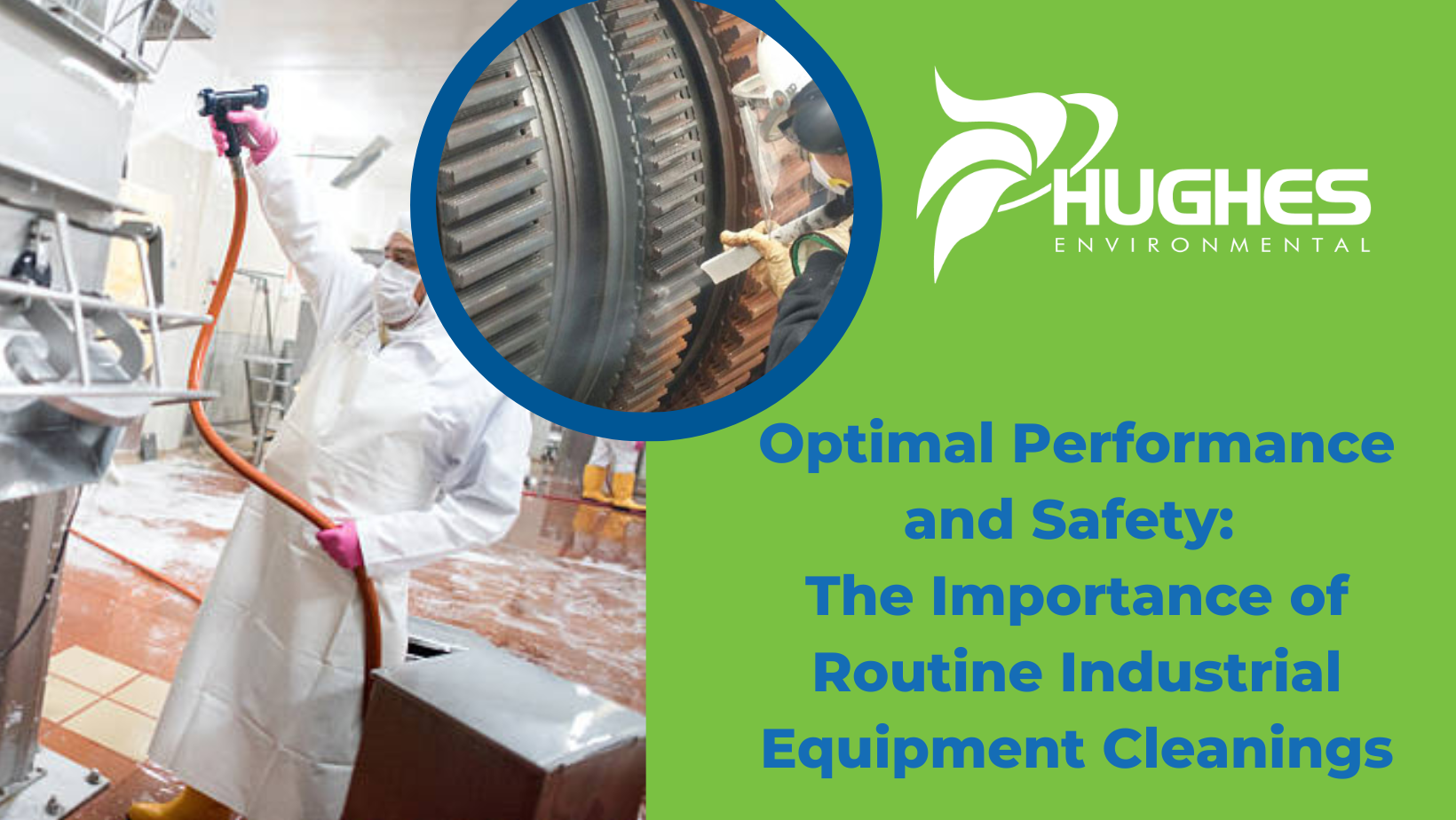
Industrial equipment forms the backbone of countless industries, powering production, efficiency, and innovation. However, amidst the hustle and bustle of daily operations, one crucial aspect often gets overlooked: routine equipment cleanings. Regularly cleaning industrial machinery is not just about aesthetics; it plays a vital role in maintaining optimal performance, extending equipment lifespan, ensuring product quality, and most importantly, promoting a safe work environment. Here are some reasons that highlight the importance of routine industrial equipment cleanings and the benefits having a routine brings:
-
Enhanced Performance and Efficiency: Industrial equipment, such as machinery, tools, and processing units, accumulate dirt, dust, grime, and debris over time. These contaminants can impede the functionality of moving parts, clog air filters, hinder electrical connections, and disrupt fluid flow. Routine cleanings remove these obstructions, allowing equipment to operate at peak efficiency. Clean machinery experiences reduced friction, leading to improved performance, lower energy consumption, and decreased wear and tear. By investing in regular cleanings, businesses can maximize their operational output and minimize unexpected breakdowns or costly repairs.
-
Prolonged Equipment Lifespan: Industrial equipment represents a significant investment for any business. Regular cleanings play a crucial role in extending the lifespan of these assets. Dust, dirt, and corrosive substances can accumulate on sensitive components, leading to accelerated deterioration and potential breakdowns. By implementing routine cleanings, businesses can prevent the build-up of harmful substances, mitigate the risk of corrosion, and prolong the life of their equipment. This proactive approach saves costs associated with premature replacements and ensures a higher return on investment in the long run.
-
Improved Product Quality: In many industries, product quality is directly influenced by the condition of the equipment used during the manufacturing or processing process. Unclean machinery can introduce contaminants into the production line, compromising product integrity and leading to rejections or recalls. Routine cleanings remove debris, bacteria, and other contaminants, ensuring that the equipment remains sanitary and does not contaminate the products being produced. Maintaining a high level of cleanliness in industrial equipment supports consistent product quality, enhances customer satisfaction, and protects the brand reputation.
-
Safety and Risk Mitigation: Safety should always be a top priority in any industrial setting. Neglected or unclean equipment poses significant risks to both workers and the facility itself. Accumulated dust and debris can increase the risk of fires, hinder ventilation systems, and obstruct emergency shut-off mechanisms. In addition, dirty equipment can compromise the accuracy and reliability of sensors, leading to potential safety hazards. Routine cleanings help eliminate these risks, ensuring that equipment operates safely and that emergency measures can be implemented effectively when needed. By prioritizing equipment cleanliness, businesses demonstrate their commitment to a safe working environment for their employees.
-
Compliance with Regulations and Standards: Industries often operate within specific regulatory frameworks and adhere to stringent standards to ensure safety, quality, and environmental responsibility. Routine equipment cleanings are an essential aspect of compliance with these regulations. Regulatory bodies may require businesses to maintain clean and well-maintained equipment to ensure operational integrity and prevent environmental contamination. By performing regular cleanings, businesses can confidently demonstrate compliance during inspections, audits, and certifications.
Routine industrial equipment cleanings are not merely a superficial task; they are a critical investment in performance, longevity, product quality, and safety. Clean equipment operates more efficiently, reduces the risk of breakdowns, and contributes to overall operational excellence. Moreover, routine cleanings align businesses with regulatory requirements, safeguard employees, and enhance product integrity. By implementing a comprehensive maintenance strategy that includes regular equipment cleanings, businesses can optimize their operations, protect their investments, and foster a culture of safety.

